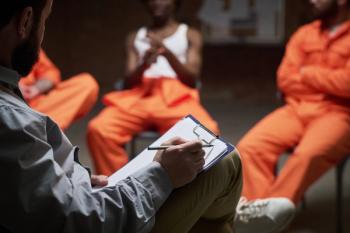
- Psychiatric Times Vol 24 No 13
- Volume 24
- Issue 13
Forensic Ethics and the Expert Witness
The role of the forensic psychiatrist frequently requires straddling a fence. On the one side lie the standard function and commensurate ethics of a physician; on the other are the needs of the legal system calling for objectivity, truth, and justice.
by Philip J. Candilis, Robert Weinstock, and Richard Martinez
New York: Springer, 2007
226 pages • $49.95 (hardcover)
The role of the forensic psychiatrist frequently requires straddling a fence. On the one side lie the standard function and commensurate ethics of a physician; on the other are the needs of the legal system calling for objectivity, truth, and justice. The grass on either side is not so much greener as it is of an entirely different species with its own evolution and essential needs. The heedful forensic practitioner walks this divide carefully, recognizing that this mixing of species often brings roles and ethical hierarchies into direct conflict. How does one honor the profession of medicine and abide by its core principles while meeting the needs of the courts and the justice system's own set of values? These challenges and a method for navigating them are thoughtfully synthesized in Forensic Ethics and the Expert Witness.
Candilis, Weinstock, and Martinez collectively place a wealth of experience in forensic psychiatry and ethics behind this work. The degree of scholarship and quality of writing make for a tour de force of extraordinary power. The authors begin by clarifying the problem and illustrating the various positions and theories of forensic practice that exist at either end of the spectrum.
At one end, the forensic psychiatrist remains first and foremost a physician, bound by oath to first do no harm and should thus decline cases in which his or her involvement could prove detrimental to the individual being evaluated. On the other end, the forensic psychiatrist assumes a unique role in which typical physician duties and codes yield to the specific needs of the legal system. The authors, in soundly rejecting absolutist problem-solving approaches, identify the values and flaws at both extremes and endeavor to bring the best aspects of each into a cohesive, unified theory.
The authors provide a captivating review of various applicable ethical theories and pertinent perspectives from related fields. Virtue theory, deontology, social contract theory, systems approach, decision analysis, medical anthropology, and sociology, among others, are managed in a seemingly impossible fashion that is concise and yet enormously informative. The authors have a particular fondness for narrative ethics, and this method for understanding the conflicts of human relationships is carefully woven into the emerging treatise. Thankfully, the book grounds its theorizing and ethicizing in the real world, using actual cases to illustrate critical points and providing position statements from appropriate professional organizations.
The book includes a section that chronicles the debate over the expert's participation in evaluating a person's competency to be executed. The written exchange between prestigious authorities makes for great reading. The authors' use of the exchange as a vehicle for education on constructing, analyzing, and overcoming arguments is exceptional in style and content.
Whether a reader begins this book squarely positioned at a particular end of the role spectrum or has yet to develop a personal position on this important aspect of forensic practice, he will realize the vast array of competing values and learn to avoid sweeping absolutist postures. Armed with a sharpened knowledge of argument tactics and an enhanced awareness of the ethical issues surrounding the expert's balancing act, the medical professional may enter the legal arena with newfound confidence.
Articles in this issue
about 18 years ago
Methadone as an Analgesicover 18 years ago
LifeSkills Training Programs Combat Adolescent Delinquencyover 18 years ago
Obituaries in a Medical School Magazineover 18 years ago
Illinois to Implement New Mental Illness Treatment Lawover 18 years ago
The Case for Adolescenceover 18 years ago
Gifts From Patients: Pragmatic Model Offers Guidanceover 18 years ago
Computer Gaming--When Virtual Violence Becomes Realover 18 years ago
Psychiatric Emergencies in Bipolar and Related DisordersNewsletter
Receive trusted psychiatric news, expert analysis, and clinical insights — subscribe today to support your practice and your patients.







